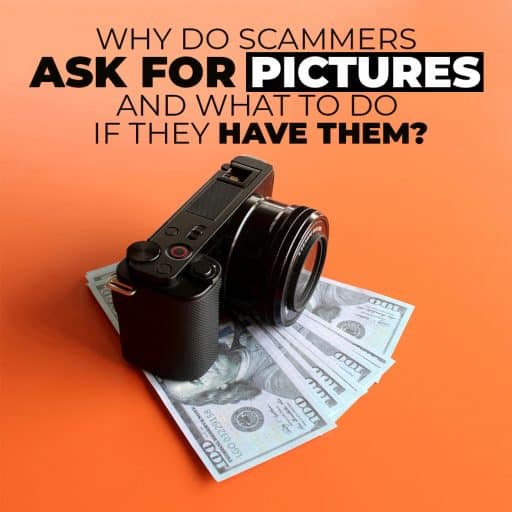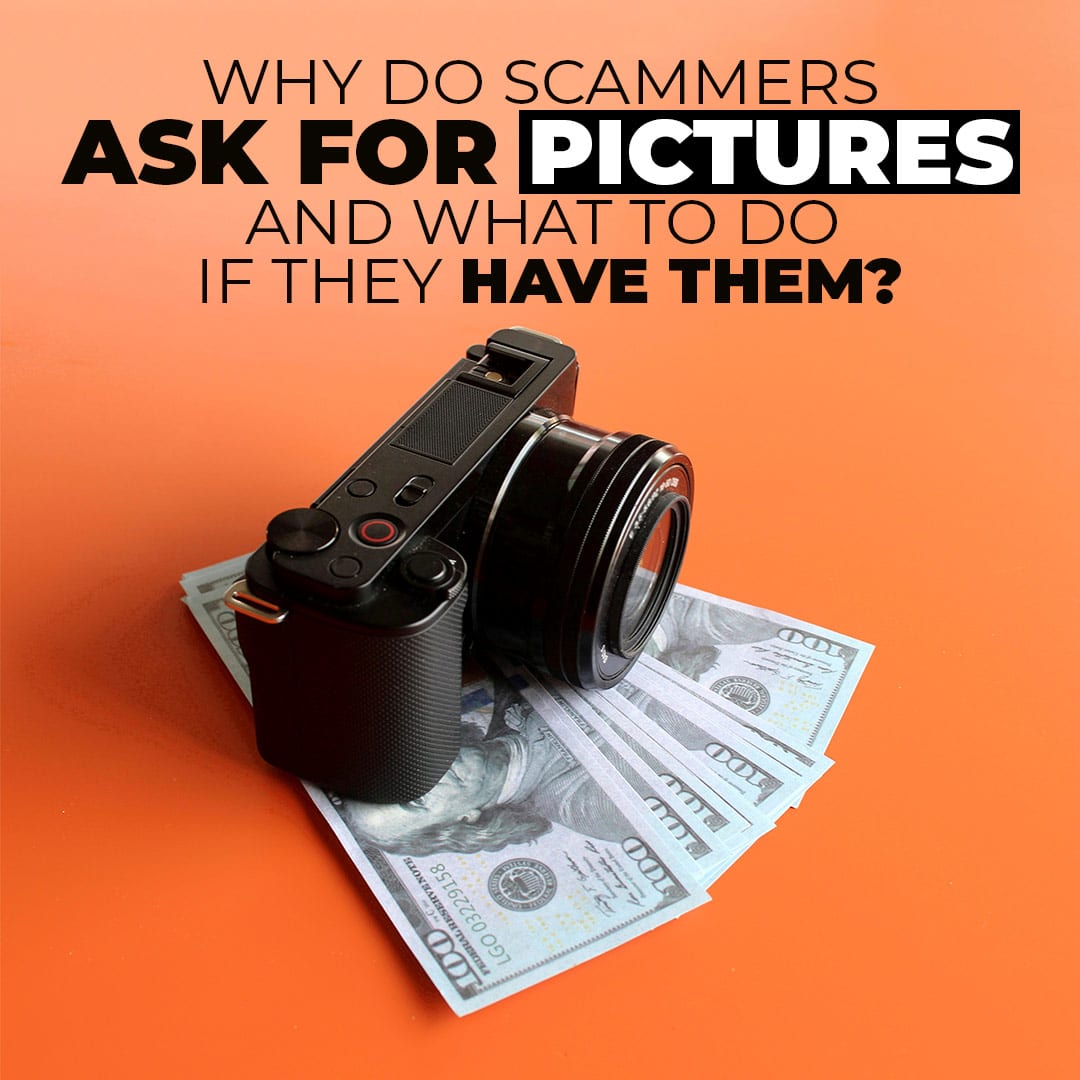Your life feels like it’s over in a single click. That’s the reality when you’re targeted in an image-based scam or blackmail scheme. One day, you’re sharing a photo online; the next, your world crashes down around you. Threats, extortion, and utter ruin become your new reality.
We truly do live in a digital world, and as such, photos aren’t just mementos. They’re a scammer’s weapon of choice. They can take your photos — no matter how ordinary — and use them to steal your identity, empty your bank account, or even hold you hostage to fear.
Here at Digital Forensics, we want you to know you’re not alone in this fight. That’s why we’re exposing the dark underbelly of image-based scams. We’ll be talking about some of the shady tricks scammers use to get your images and why they want them in the first place.
We’ll also tell you how a scammer can wreak havoc on your life by having your photos. But we’re not going to leave you alone to face this threat. Our sole existence is to provide everyday people like yourself with the tools, wisdom, and insight needed to sidestep the next threat that comes your way.
Is Sharing Photos Online Dangerous?
Forget the idea that only scandalous photos are dangerous. Scammers can weaponize even the most boring snapshots. That birthday selfie? It gives them your birthdate. A photo of your new car, complete with a license plate? They’ve got your address. It’s a puzzle, and scammers are experts at piecing it together.
Once they have your identity, the games begin. They can open bank accounts, apply for loans, or file fake tax returns — all in your name. If that wasn’t bad enough, scammers can also open up social media accounts and act in your place, fielding questions from loved ones and attempting to extort even more money from unwitting acquaintances.
While we’re talking about images, we may as well address the elephant in the room — explicit pictures. You might think your private photos are safe. But for the scammer, these images are the Holy Grail.
They can threaten to share them with your loved ones unless you pay them off. The fear, the shame, the potential for broken relationships — it’s devastating. Sadly, the threat doesn’t end there. Romance scams are surging, and your photos are their bait.
In the hands of a scammer, your photos can swiftly be used against you. The key is to prevent this from happening in the first place. But that’s sometimes easier said than done.
How Can Scammers Get Your Photos?
So, how do scammers actually get their hands on your photos? It’s actually not as complex as you might think. They’re masters of deception, craftily making their way into your digital life through seemingly harmless channels.
Social Media
We all love sharing our lives online, but social media is a scammer’s playground. Even with privacy settings in place, it’s easy to overshare. That innocent vacation photo? It tells them you’re not home. That birthday post? Free access to your birthdate.
And it’s not just about the photos themselves. Those quizzes that tell you what kind of car you are or what celebrity you look like? They sure may seem like harmless fun. But did you know that they often collect a ton of personal data?
Even sharing a meme can give away information if it’s connected to your other online accounts. And you better believe that scammers are looking for ways to obtain and use it.
Phishing and Fake Websites
Ever received an email that seemed a little off, but you clicked the link anyway? There’s a high probability that it’s a classic phishing scam. Scammers create fake websites that look identical to the real ones (think banks, social media platforms, etc.).
When you enter your login information via a phishing link, you’re actually handing it straight to them. And once they’re in, your private photos are fair game.
Direct Requests
Sometimes, scammers don’t even bother with the subtle stuff. They’ll flat-out ask you for photos. Maybe it’s part of a fake job application, a modeling contest, or a seemingly innocent online chat. Remember, anyone can pretend to be someone they’re not online. Sharing photos with strangers is a risky proposition.
The bottom line? Your digital footprint is a lot bigger than you realize, and scammers are pros at learning your online habits. The best defense is awareness. Be cautious about what you share, who you share it with, and the website you trust.
What Can I Do if Scammers Have My Photos?
So, the worst has happened. A scammer has gotten ahold of your photos. You’re terrified, and understandably so. Panic washes over you. It’s easy to feel defeated, but you must keep in mind that this doesn’t define you.
The shame doesn’t have to control you, nor do you have to let it. The sooner you act, the better your chances of taking back control of this awful situation. First things first, reach out for help.
You absolutely don’t have to go through this alone. At Digital Forensics, we are the pros you need on your side.
We’re tech detectives who specialize in tracking down the creeps who stole what’s yours. We have the skills needed to uncover the scammer’s identity, gather evidence of their crimes, and even negotiate to get your photos back.
We’re dedicated to empowering people just like you. It’s our mission to provide the support you need to be made whole again. How do we do it? We utilize numerous tools, knowledge, and resources to help you in this fight. More specifically, to help you win this fight.
We know this is an urgent situation, and we act accordingly. As you’ll learn momentarily, we have a high success rate of aiding our clients in retrieving their stolen images and identities. Stick around to learn how to take advantage of our expertise.
Contact the Proper Authorities
First, though, we need to talk about the authorities. Yes, you need to contact the police, the FBI, or both.
We get it; it can be scary to come forward. You might feel embarrassed or worry about being judged. But remember, you are the victim here. These agencies exist to protect you, and your information can help them build a solid case against the scammer.
You’re not the only one who has faced this. Many others have come before you, and many will come after you. This doesn’t make you weak, stupid, or any other negative term. Listen when we say, “It can happen to anyone.”
The important thing is not to let your fear result in inaction. You must come forward. Why? Because doing so not only improves your chances of capturing the perpetrator but may also prevent someone else from getting scammed.
So be sure to reach out to the proper authorities and then call us. We stand ready to assist you in getting your life back together and back on track.
Protecting Yourself: Staying One Step Ahead
The best defense against image-based scams is a good offense. You need to be smart and proactive with your online presence.
Here’s how:
Lock Down Your Social Media
We all love sharing, but be mindful of what you put out there. Take a close look at the privacy settings on all your social media accounts.
Make sure only your trusted friends and family can see your posts and photos. Be wary of those “fun” quizzes and apps — they often collect way more data than you’d expect.
Strong Passwords Are Your First Line of Defense
Use strong, unique passwords for every online account, and change them regularly. Don’t use easily guessable information like your date of birth or your dog’s name. Think about opting for a password manager, as it will help you keep track of them all.
Think Before You Click
Be suspicious of unsolicited emails or messages, especially if they contain links. Avoid clicking on anything that seems even a little bit off. And remember, no legitimate company will ever ask for your password via email or text.
If you’re afraid of slipping and getting taken, you can avoid being scammed by making each tip above a habit. It will take some time for you to do these things naturally. But the more you practice them, the less you’ll need to actively think about them.
Develop good online habits, and you’ll be one step ahead of the bad guys. For help in this area, we encourage you to check out our extensive blog section. There, you’ll find a wealth of knowledge and resources designed to keep you sharp on the internet.
Digital Forensics Is Your Source for Avoiding Scams
Image-based scams are a serious threat, with the potential to upend your life. But remember, you are not powerless. By understanding the tactics scammers use and taking proactive steps to protect yourself, you can minimize your risk in a big way.
If you’re already a victim, don’t hesitate to reach out for help. The experts at Digital Forensics are here for you 24/7. We have the experience and tools to help you regain control and find justice. Remember, you are not alone in this fight.
Sources:







